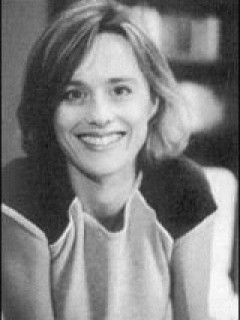For those unfamiliar with our training and education programme, this comprises a mix of regular and one-off courses and seminars. We are constantly looking for people who are eager to get involved so if you are interested in contributing to an already established course or have an idea for a new one please get in touch.
Highlights of the 2001/2 programme included:
- The bi-annual two-day Moderating Skills Workshops, which get better and better due to the huge efforts of Andrew Beney, Deep Blue Research, who uses participant feedback to improve them continuously. The next workshop will be in September so book now!
- The Non-Residential Foundation Course, convened over five consecutive Fridays by Geoff Bayley and Caroline Snell of RDSi research. We'd like to thank both of you for the time and effort you put in to make this such a successful event.
- An Advanced Seminar which covered the latest thinking in qualitative research and designed with more experienced researchers in mind. We plan to make this an annual event.
Other regular events this year have included:
- The 2001 Trends Day, which attracted 100 delegates. In response to feedback, this year's Trends Day will adopt a less formal format, involving more audience participation look out for forthcoming publicity.
- The 'Not the Christmas Party' proved particularly popular this year so we have booked the same date and venue for 2003. In fact, the party proved so successful that we are having a Summer Party for the first time as well.
What we learnt from last year's membership survey was that members wanted more opportunities to meet, discuss and network. In response, we have introduced a number of new events this year:
- Twice-yearly forums geared to researchers with under two years' experience, each session featuring a guest speaker.
- A field update and social meeting around Christmas.
- Round table discussions with different groups of researchers, of which two so far have been conducted with younger and very experienced researchers. Their aim is to elicit members' ideas about the future of the industry and specific issues that arise from this. Feedback will be provided to the membership about the outcomes of these discussions.
We feel it is important for our membership that the AQR develops and strengthens its relationships with other professional bodies. Activities that reflect this intention include:
- A commitment to forge stronger links with the MRS, focusing on collaboration over professional guidelines and accreditation.
- The delivery of a workshop for AURA in September 2002 to keep clients up to date with AQR activities such as the launch of the Qualitative Recruitment Guidelines and why these are relevant to them, plus recent innovations within qualitative research.
- A joint AQR/AURA seminar to be conducted at the Research Show in October 2002.
- A further joint International conference with the QRCA planned for April 2003 in Lisbon.
Our communications, meanwhile, go from strength to strength. The annual directory has yet more entries, with growing numbers of international companies. It is now fully searchable on-line.
This year In Brief was redesigned this year to reflect AQR's new, more outward looking, positioning while the web site goes from strength to strength. It now gets more than 3,000 visitors a month. The library section has been expanded and we are about to formalise this process by commissioning Gill Ereaut to pull together insightful items drawn from around the world on an ongoing basis.
Last but not least, this year we published the Qualitative Recruitment Guidelines. We anticipate that these will develop on an ongoing basis, but it is critical for the professionalism of the industry that agreed standards and approaches are in place.
Key developments for members to look forward to next year are the provision of member benefits, providing access to discounts on a range of essential items for qualitative researchers from hotels to travel insurance, etc so watch this space!!


